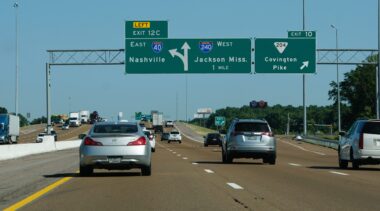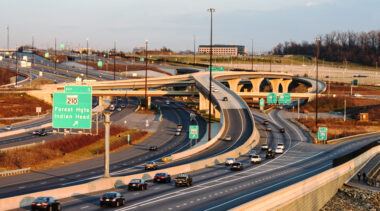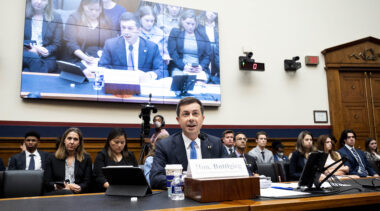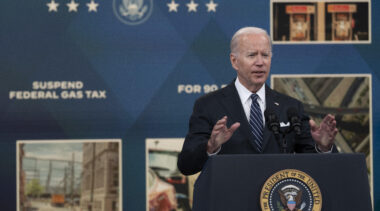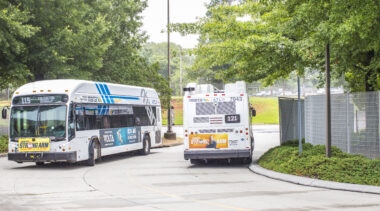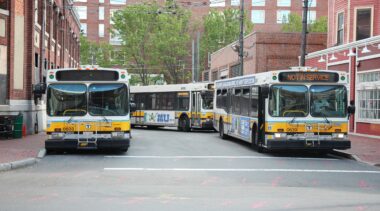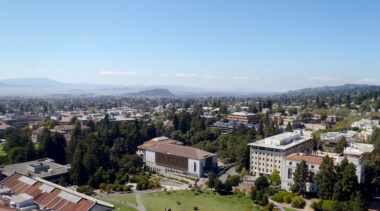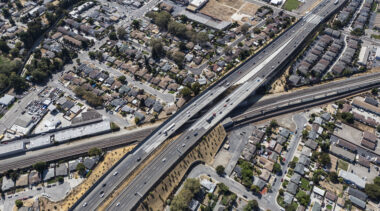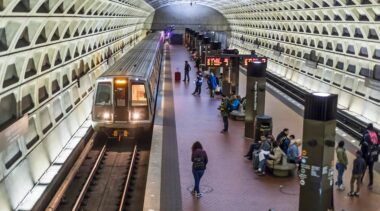Baruch Feigenbaum is senior managing director of transportation policy at Reason Foundation.
Feigenbaum has a diverse background researching and implementing transportation issues including revenue and finance, public-private partnerships, highways, transit, high-speed rail, ports, intelligent transportation systems, land use, and local policymaking. Prior to joining Reason, Feigenbaum handled transportation issues on Capitol Hill for Rep. Lynn Westmoreland.
Feigenbaum is a member of the Transportation Research Board Bus Transit Systems and Intelligent Transportation Systems Committees. He is vice president of programming for the Transportation and Research Forum Washington Chapter, a reviewer for the Journal of the American Planning Association (JAPA), and a contributor to Planetizen. He has appeared on NBC Nightly News and CNBC. His work has been featured in the Washington Post, The Wall Street Journal and numerous other publications.
Feigenbaum earned his master's degree in Transportation Planning with a focus in engineering from the Georgia Institute of Technology.
-
Californians are paying high gas taxes for bad roads
California’s roads and bridges rank 47th out of 50 states overall in cost-effectiveness, safety, and condition.
-
Tennessee Gov. Lee signs significant transportation bill with choice lanes
No state has attacked traffic congestion in the systematic, statewide manner that Tennessee did with its Transportation Modernization Act.
-
The SMART grant process isn’t transparent or serving federal taxpayers’ interests
Taxpayers should have a clear explanation of the national infrastructure interests advanced by federal SMART grants.
-
Examining Maryland’s options after Transurban exits toll lanes project
Finding a way to revive the managed lanes public-private partnership to transfer risk from taxpayers and to provide more transit options for commuters should be the goal.
-
FHWA administrators want to stop humorous traffic safety messages
Researchers are still trying to evaluate the effectiveness of direct message signs on highways.
-
Pennsylvania finalizes public-private partnership deal to rebuild nine highway bridges
The Major Bridges P3 deal is the state's latest use of public-private partnerships to repair, rebuild and modernize bridges.
-
Long-range transportation plans need to be grounded in reality
Scenario planning is only effective if transportation planners utilize realistic user and budget scenarios with solid data.
-
Federal RAISE grants continue to fail to prioritize key transportation projects
Of the 166 projects awarded RAISE grants, just over half were directly related to transportation.
-
The gas tax is no longer a reliable revenue source
But many states aren't testing mileage-based user fees or looking for replacements to fuel taxes.
-
President Biden’s gas tax holiday is a bad idea
Biden's suggested fuel tax holiday is unlikely to reduce prices at the pump but could blow a hole in the federal Highway Trust Fund.
-
Calls for Atlanta to cut bus services for transit-dependent riders in order to build rail for higher-income groups
MARTA is correct to focus its limited resources on providing quality bus services to people who rely on transit in their daily lives.
-
Bus rapid transit systems need to use transit signal priority
On average, bus travel times are reduced by 15% and key intersection delays are reduced by 50% when using transit signal priority.
-
How to make overdue reforms to the California Environmental Quality Act
“CEQA is the law that swallowed California."
-
Steps metro governments can take to address housing affordability, skyrocketing prices
Local governments need to make changes to zoning laws, building-approval processes, and height limits that prevent more housing from hitting the market.
-
California drivers pay nation’s highest gas taxes for roads and bridges in poor condition
In addition to the 18.4 cents a gallon federal fuel tax, California’s drivers pay 51.1 cents per gallon in state gas taxes, plus state and local sales taxes.
-
Another congressional hearing, but few improvements at WMATA
The Washington Metropolitan Area Transit Authority's board is fundamentally flawed.
-
Arizona’s kids need expanded transportation options to get to the schools of their choice
Some of Arizona’s highest-quality schools are unable to offer student transportation thanks to outdated state laws.
-
Pittsburgh bridge collapse highlights how governments put off infrastructure repairs and maintenance
Consistently deferring repairs and maintenance can lead to disaster.


